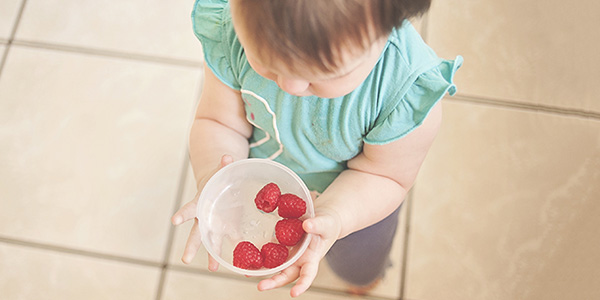When children reach school-going age, many parents breathe a sigh of relief.
[the_ad id=”6085″]
They think that gone are the days of daily hassles of introducing new foods to their kids followed by lengthy persuasions when they refuse to eat. But the fact is their job isn’t over yet. Children beginning their school years have many nutritional needs to meet and will have to face new choices about eating. Proper selection of their lunch box menu and after-school snacks will affect nutritional habits that may last a lifetime.
Most growing children (above the ages of 3 or 4) are under a lot of pressure to perform well academically. At the same time, there is a lot of importance given to sports and other extracurricular activities too. Most children are urged to remain active throughout the day and in order to do so they require a high level of energy. Therefore, it is absolutely essential for parents to ensure that their growing children get their required intake of nutrients on a daily basis, which will enhance their performance in their day to day lives, at the same time enabling their minds and bodies to grow properly.
The nutrients needed by children are the same needed by adults, but the amounts vary. There are a variety of vitamins and minerals which support growth and development during childhood.
Calcium obtained from milk and dairy products and from dark green, leafy vegetables, is usually sufficient nutrition in the diets of young children. As children approach teen years, their dietary calcium intakes do not always keep up with recommended daily allowances. Calcium is particularly important in building strong bones and teeth. Bone density suffers when calcium needs are not met during childhood years. Osteoporosis, a brittle bone disease that affects older adults, begins in childhood if diets don’t include adequate calcium-rich foods.
Carbohydrates and fats provide energy for growing and physical activity. When children hit phase of rapid growth, their appetite expands and they may appear to be constantly eating. When growth slows, appetite diminishes and children will eat less food at meal times. They will require fewer snacks.
Protein builds, maintains and repairs body tissue. It is especially important for growth. It is important, to encourage children to eat two to three servings of meat, fish, poultry or other protein-rich food each day. Milk and other dairy products also are good protein sources for children.
The growth rate of children in the age group of 9-13 years is much steadier, and the energy and nutrient requirements are high. In order to meet the nutritional requirements it is important to include a variety of foods in his diet.
• Grains: Between 120 to 180 grams each day
• Vegetables: Between 1½ cup to 2½ cups each day
• Fruits: Between 1 cup to 1½ cups each day
• Dairy Products: Between 2 cup to 3 cups each day
• Nuts, Beans, Fish & Meat: Between 90 to 150 grams each day
• Fat and Oil: No more than 30% of a daily caloric intake
• Sweets and Sugar: Only on certain occasions
Muscle building foods for kids
Most parents associate body building foods with adults, as children usually do not go to the gym to work out and increase their muscle mass. However, it is important for parents to realize that as children grow older, their bones, tendons, ligaments and muscles grow at a fast pace too. Therefore, it is absolutely essential for all parents to ensure that appropriate amounts of body building foods for children are included in their kid’s diet plans. In fact, following a diet that is high in body building foods for kids is probably more important than a body building diet for adults. Moreover, most normal children are very active throughout the day, if they engage in sports, games and exercises the way they should. Therefore, it is important for them to follow a healthy diet, which will enable them to strengthen their muscles and bones. All parents are advised to make sure that they include at least one source of protein in each meal they prepare for their child, in addition to any other nutrients that they include.
Some of the best muscle building foods for a child include:
• Fresh fruit and vegetables
• Whole grains, beans, sprouts and pulses
• Dairy products like milk, cottage cheese and yogurt
• Skinless chicken, fish, nuts, eggs and lean meat.
In addition to a diet, children should also get an adequate amount of physical activity each day, to help them develop their bone and muscles. Parents are also advised to consult a doctor for the appropriate body building foods for toddlers, so that the correct eating habits can be incorporated from an early stage.
Source:

